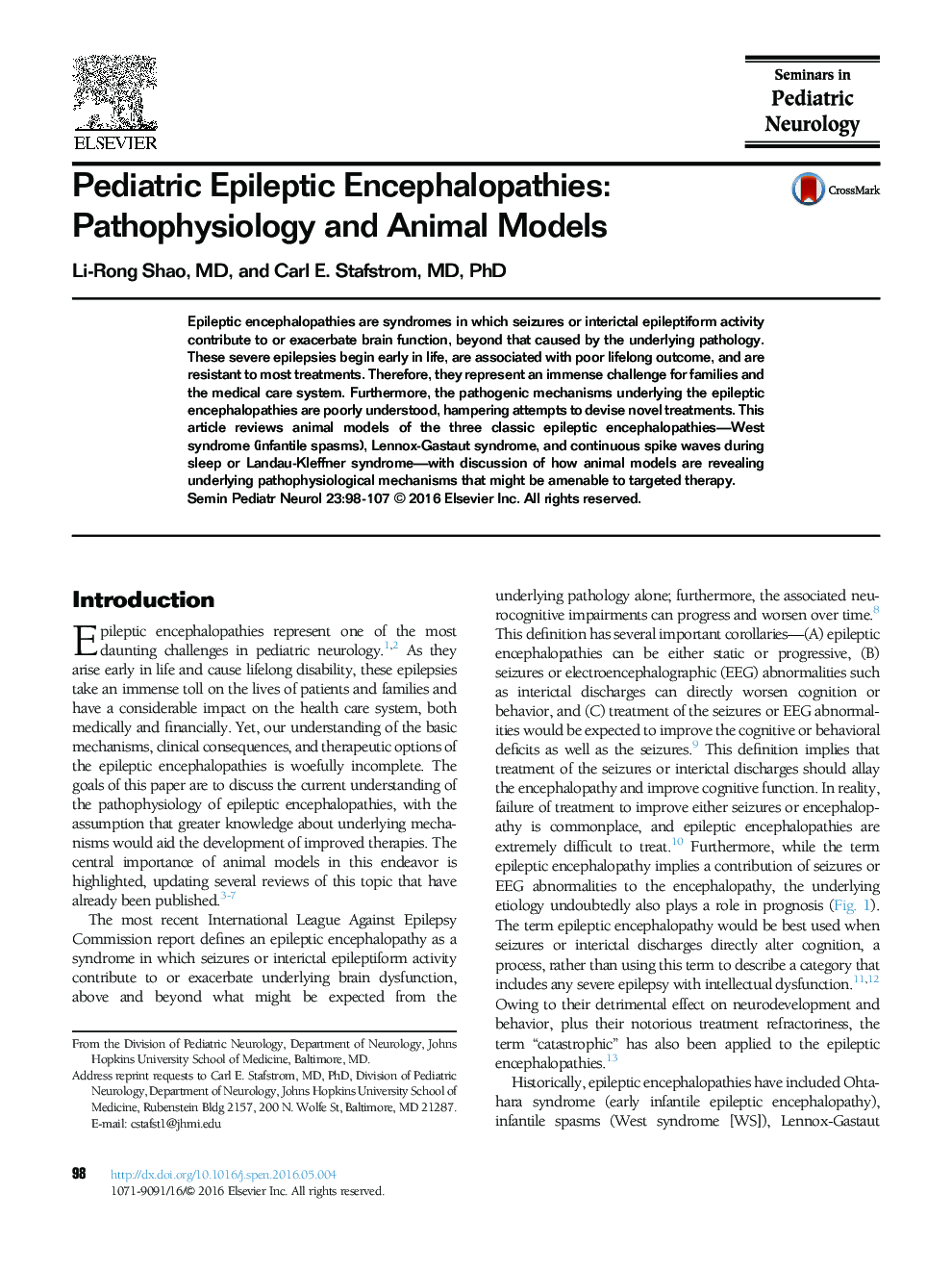| Article ID | Journal | Published Year | Pages | File Type |
|---|---|---|---|---|
| 3090751 | Seminars in Pediatric Neurology | 2016 | 10 Pages |
Epileptic encephalopathies are syndromes in which seizures or interictal epileptiform activity contribute to or exacerbate brain function, beyond that caused by the underlying pathology. These severe epilepsies begin early in life, are associated with poor lifelong outcome, and are resistant to most treatments. Therefore, they represent an immense challenge for families and the medical care system. Furthermore, the pathogenic mechanisms underlying the epileptic encephalopathies are poorly understood, hampering attempts to devise novel treatments. This article reviews animal models of the three classic epileptic encephalopathies—West syndrome (infantile spasms), Lennox-Gastaut syndrome, and continuous spike waves during sleep or Landau-Kleffner syndrome—with discussion of how animal models are revealing underlying pathophysiological mechanisms that might be amenable to targeted therapy.
